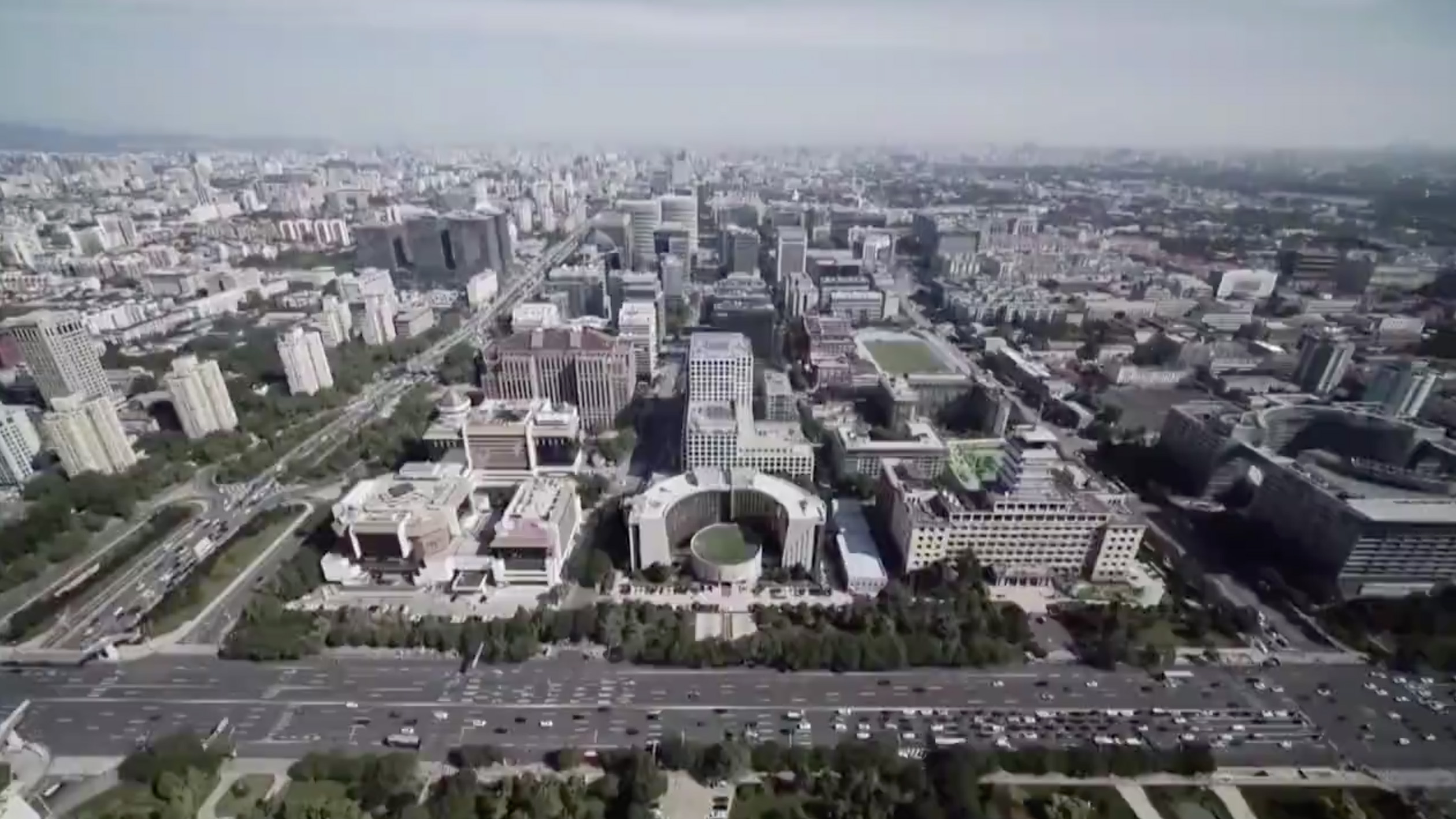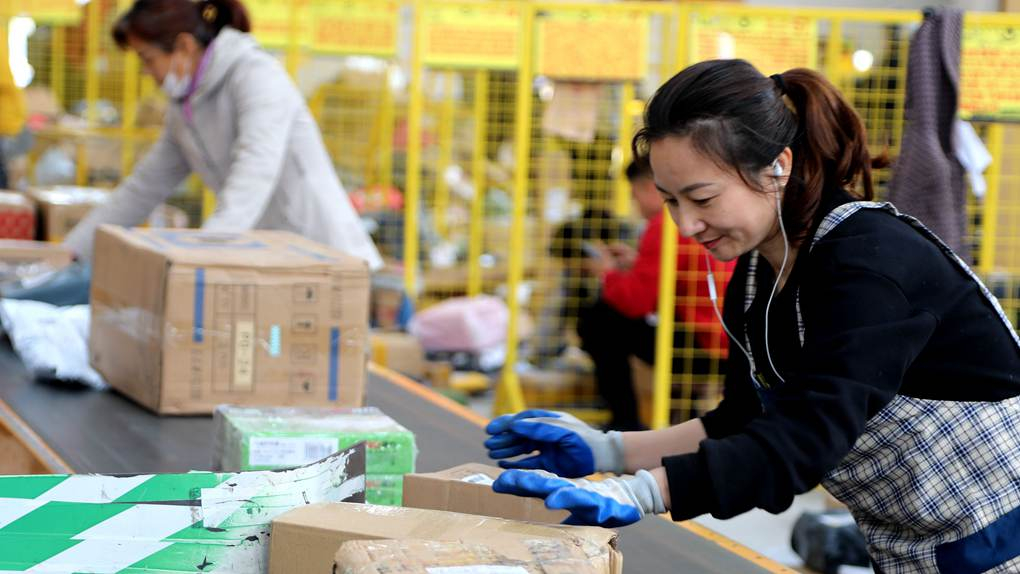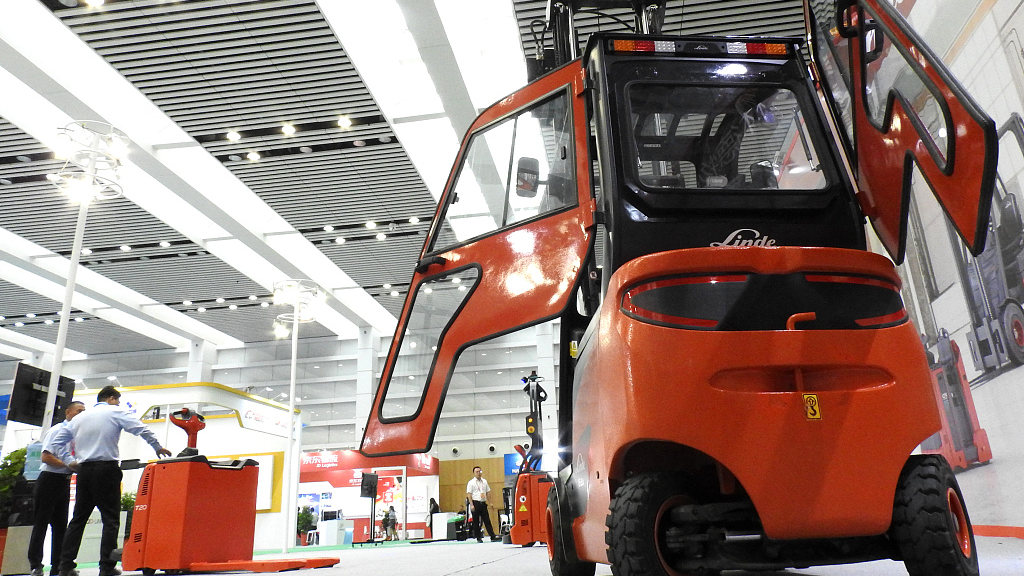00:33

Chinese President Xi Jinping on Wednesday stressed coordinated efforts to advance the construction of a modern logistics system to provide strong support for a new development pattern.
Xi, also general secretary of the Communist Party of China (CPC) Central Committee and chairman of the Central Military Commission, made the remarks at the eighth meeting of the Central Committee for Financial and Economic Affairs. He is also head of the committee.
Importance of modern logistics system
The construction of an effective logistics system will help to promote the "dual circulation" model, according to the meeting.
Defined as a policy that "takes the domestic market as the mainstay while letting internal and external markets boost each other," the model has been viewed by analysts as a viable solution for China to build up resilience against external shocks and share its opportunities for development with the rest of the world.
Read more:
Expert: China to develop itself in a more balanced way
Why China leads the world in logistics
Official data showed China's consumer spending contributed 57.8 percent to the GDP growth last year, compared to the 35.3 percent ratio in 2008.
In 2019, China's GDP per capita exceeded 10,000 U.S. dollars for the first time in history, making the emphasis on the domestic market a natural choice as the country's huge consumer scale and growing supply capacities entail mass opportunities at home.

Employees sort parcels in a logistics company in Hai'an City, east China's Jiangsu Province, April 22, 2020. /VCG
Employees sort parcels in a logistics company in Hai'an City, east China's Jiangsu Province, April 22, 2020. /VCG
Notable progress has been made in the development of China's logistics system since the 18th CPC National Congress in 2012, with the gradual improvement of the national backbone logistics network and the emergence of new forms and models in the field of logistics, the meeting noted.
China will establish a comprehensive modern transport system by 2035, according to the document jointly released by the Central Committee of the CPC and the State Council.
The transport system will be composed of three networks: A high speed network of high-speed railways, expressways and civil aviation, an arterial network of low-speed railways, national highways and waterways, and oil and gas pipelines, and a basic network of provincial highways, rural highways, regional railways and general aviation, according to an official with the Ministry of Transport.
The logistics industry has also played an important role in the fight against COVID-19, the meeting said.
More measures to be taken in developing logistics system
Meanwhile, the meeting highlighted that the modernization degree of China's logistics system is still not high, and there are still many hurdles to be cleared.

The sixth China (Lianyungang) Silk Road International Logistics Expo is held in Lianyungang, east China's Jiangsu Province, September 10, 2019. /VCG
The sixth China (Lianyungang) Silk Road International Logistics Expo is held in Lianyungang, east China's Jiangsu Province, September 10, 2019. /VCG
At the meeting, the president called for more efforts in innovating development concepts, improving high-quality growth, and deepening supply-side reform.
Read more:
China slashes port service fees to bolster logistics chain
More efforts are needed in accelerating the improvement of a unified domestic market, building a modern comprehensive transportation system, and improving the modern business logistics system, the meeting stressed.
The construction of a social credit system and financial infrastructure in areas such as payment and settlement should also be strengthened, the meeting noted.
President Xi said these measures will provide strong support to a new development pattern featuring "dual circulation."
The meeting also pointed out the importance to study the experience in addressing COVID-19, and accelerate the establishment of an emergency logistics system with sufficient reserves and capability of rapid response and strong shock resistance.